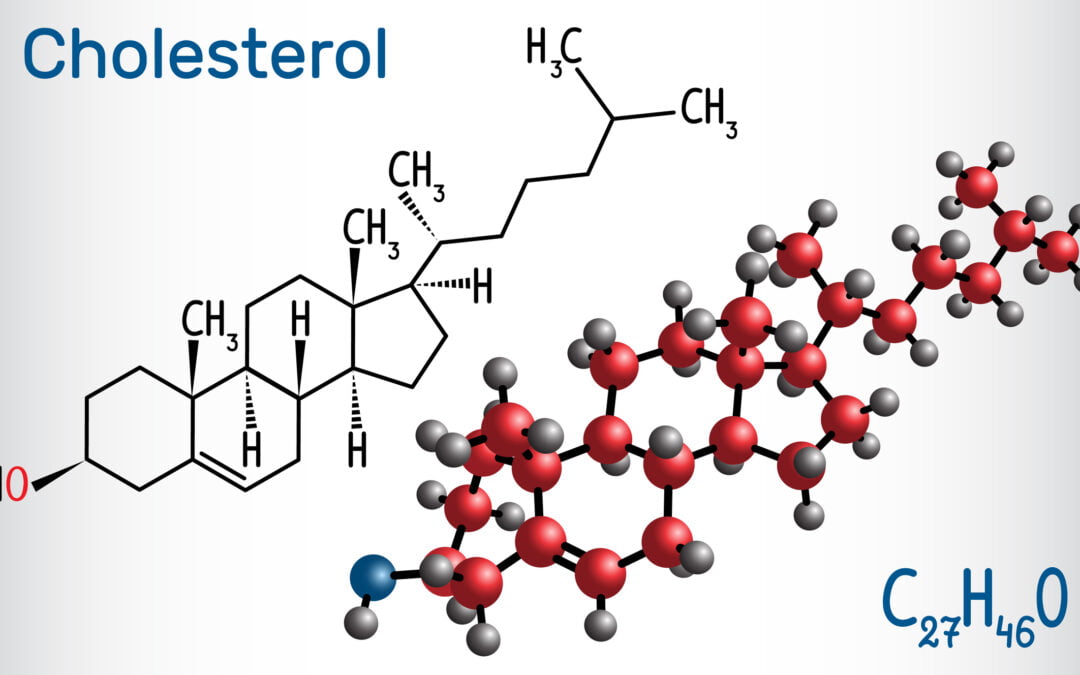People with high cholesterol live the longest. This truth may be difficult for the average person to understand since conventional nutrition “experts” and the media have unfairly demonized this natural, life-sustaining molecule. To fully understand the importance of cholesterol, it is important to learn its many vital roles in the human body.
The Importance of Cholesterol for the Body’s Function
- Almost every cell in the body produces cholesterol, a vital substance. The liver produces most of the cholesterol in the blood.
- Cholesterol is the body’s repair substance, nature’s way of repairing damage, including tears and artery irritations.
- It is an essential component of all cell membranes. Without cholesterol, our cells would not be able to communicate or transport various molecules into and out of the cell. As a result, our bodies would lose critical functions.
- Most of the body’s hormones are made from cholesterol. This includes those that regulate blood sugar, the stress response, and all the sex hormones (estrogen, testosterone, and progesterone).
- Cholesterol helps maintain the health and integrity of the intestinal wall.
- The bile salts needed for the digestion of fats and the absorption of fat-soluble vitamins are made from cholesterol.
- Cholesterol is the starting material from which our body makes vitamin D from sunlight.
- Cholesterol protects against infection. Most gastrointestinal and respiratory diseases have an infectious origin. One study showed that those who had low cholesterol were admitted to the hospital more often due to an infectious disease.
The Brain Needs Cholesterol
The brain is the most cholesterol-rich organ in the body. It’s the primary component of the myelin that surrounds and protects each nerve cell and is vital to the function of the brain and nervous system. Cholesterol plays a role in memory formation and in using serotonin, the “feel-good” brain chemical. Seniors with the highest cholesterol levels have the best memory function. Recent research shows that cholesterol acts as an antioxidant, which may explain why cholesterol increases with age.
Cholesterol Deficiency is a Problem
Cholesterol deficiency is now more common due to the widespread prescription of statin medications, a significant factor in many chronic health disorders. Low cholesterol is associated with depression, mood disorders, anxiety, bipolar disorder, violent behavior and suicide, Parkinson’s disease, and cancer mortality. Low cholesterol can also lead to less production of thyroid hormone. Most significantly, the death rate is doubled in older adults with lower total cholesterol. So, do we really want to lower cholesterol? Total blood cholesterol levels between 200 and 240 mg/dl have always been normal. Within the broad range of cholesterol levels from 180 to 240 mg/dl, there is little evidence that this alone correlates with heart disease. Seventy-five percent of people who have heart attacks have normal cholesterol levels.
Cholesterol levels can also vary widely. The same person can have different cholesterol levels during the day, in different seasons of the year (higher in winter, lower in the summer), and when we have an infection. Blood cholesterol can be elevated after dental treatment or surgery and under stress. It can become normal when we are relaxed and well. Depending on the time of day, weather, season, and environmental exposures, the damage to various tissues in the body also varies. Since cholesterol is a healing agent, the body produces it and sends it to the sites of damage, thus explaining the wide variations in blood levels.
The Importance of Cholesterol is Clear, so Why the Push to Lower It?
Sixty years ago, a researcher named Ancel Keys, Ph.D., set us on the path to what has become known as the “lipid hypothesis.” This theory concludes that excess cholesterol is the cause of heart disease, and saturated fat is the villain that increases cholesterol in the blood. The problem with this belief is that it has never been proven (thus, it is still called a “hypothesis”). According to cardiologist Steven Sinatra MD and nutritionist Johnny Bowden Ph.D., authors of The Great Cholesterol Myth, “a weird admixture of misinformation, scientifically questionable studies, corporate greed, and deceptive marketing has conspired to create one of the most indestructible and damaging myths in medical history: that cholesterol causes heart disease.” They believe “the real tragedy is that by putting all of our attention on cholesterol, we’ve virtually ignored the real causes of heart disease: inflammation, oxidation, sugar, and stress.”
The Linus Pauling Theory of Heart Disease
In 1991, Linus Pauling presented the Unified Theory of Human Cardiovascular Disease, which states that the body creates cholesterol buildup as a backup solution for preventing damaged blood vessels from hemorrhaging. This theory supports supplementation with enough vitamin C, L-lysine, and L-proline. This helps the body use these molecules to repair damaged blood vessels instead of producing excess cholesterol. More than 650 documented studies show that heart disease is a form of scurvy that occurs with vitamin C deficiency.
The following quote from the late Oxford professor David Horrobin can prompt some profound thought; “Reducing cholesterol in the population on a large scale could lead to a general shift to more violent patterns of behavior.”
Remember the importance of cholesterol and its beauty. It’s in nature and our bodies for a reason.

